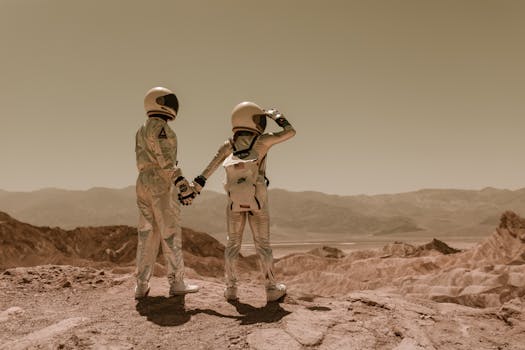
“
Soaring Through the Cosmos: The Power of Imagination Beyond the Stars
Introduction to the Cosmos and Imagination
The Power of Imagination Beyond the Stars is a fascinating topic that has captured the attention of many. The cosmos, with its infinite possibilities, has always been a source of inspiration for humanity. From the early astronomers who gazed up at the stars, to the modern-day space explorers who venture into the unknown, the power of imagination has been the driving force behind our understanding of the universe.
Imagination is the key to unlocking the secrets of the cosmos. It allows us to dream big, to envision new possibilities, and to push the boundaries of what is thought to be possible. The power of imagination is what has driven scientists and engineers to develop new technologies, to explore new worlds, and to make groundbreaking discoveries.
Section 1: The Power of Imagination in Space Exploration
The power of imagination has played a crucial role in space exploration. From the early days of space travel, when scientists and engineers imagined the possibility of sending humans to the moon, to the current day, when we are exploring the possibility of colonizing Mars, imagination has been the driving force behind our progress.
One of the most significant examples of the power of imagination in space exploration is the Apollo 11 mission. In 1969, NASA’s Apollo 11 mission successfully landed astronauts Neil Armstrong and Buzz Aldrin on the surface of the moon. This historic achievement was the result of years of hard work, dedication, and imagination. The team of scientists and engineers who worked on the Apollo 11 mission had to imagine the possibility of sending humans to the moon, and then work tirelessly to make that imagination a reality.
Section 2: The Role of Imagination in Scientific Discovery
Imagination also plays a crucial role in scientific discovery. Scientists use their imagination to develop new theories, to design experiments, and to interpret data. The power of imagination allows scientists to think outside the box, to consider new possibilities, and to make connections between seemingly unrelated concepts.
One of the most famous examples of the power of imagination in scientific discovery is the theory of relativity developed by Albert Einstein. Einstein’s theory of relativity, which posits that time and space are relative, was the result of his imagination and creativity. Einstein’s ability to imagine new possibilities, to think outside the box, and to challenge conventional wisdom led to a fundamental shift in our understanding of the universe.
Section 3: The Future of Space Exploration and the Power of Imagination
As we look to the future of space exploration, the power of imagination will continue to play a crucial role. With the development of new technologies, such as reusable rockets and advanced propulsion systems, we are on the cusp of a new era of space exploration.
The power of imagination will be essential in driving this new era of space exploration. Scientists, engineers, and astronauts will need to imagine new possibilities, to develop new technologies, and to push the boundaries of what is thought to be possible. The power of imagination will be the driving force behind our exploration of the cosmos, and will ultimately determine the success of our endeavors.
Conclusion and Takeaways
In conclusion, the power of imagination is a crucial aspect of space exploration and scientific discovery. It allows us to dream big, to envision new possibilities, and to push the boundaries of what is thought to be possible.
Takeaways:
- Imagination is the key to unlocking the secrets of the cosmos.
- The power of imagination has driven scientists and engineers to develop new technologies and to make groundbreaking discoveries.
- The power of imagination will continue to play a crucial role in the future of space exploration. Beyond Stars: Where Imagination Takes Flight
- Imagination allows us to think outside the box, to consider new possibilities, and to make connections between seemingly unrelated concepts.







